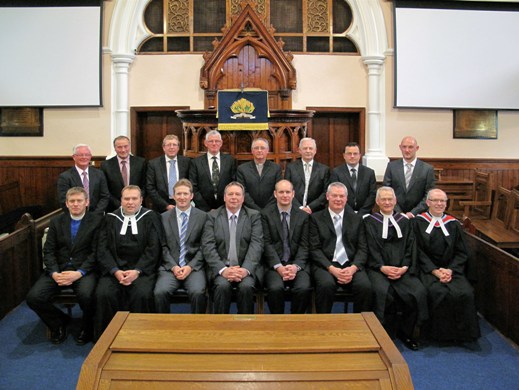Elders

The government of the Presbyterian Church is based on a Biblical model. Jesus delegated his authority to the Disciples and as they planted churches so in turn they appointed elders to govern the local congregations. They were to rule, teach and pastor Godís flock looking after the sick and bereaved.
However the use of elders is not restricted to the New Testament and in Exodus chapter 18 Mosesí father in law advises him to appoint men to assist him in the role of governing the people.
Paul sets out the qualifications for eldership in 1 Timothy 3:2-7
2 A bishop then must be blameless, the husband of one wife, vigilant, sober, of good behaviour, given to hospitality, apt to teach; 3 Not given to wine, no striker, not greedy of filthy lucre; but patient, not a brawler, not covetous; 4 One that ruleth well his own house, having his children in subjection with all gravity; 5 (For if a man know not how to rule his own house, how shall he take care of the church of God?) 6 Not a novice, lest being lifted up with pride he fall into the condemnation of the devil. 7 Moreover he must have a good report of them which are without; lest he fall into reproach and the snare of the devil.
1 Tim 3:2-7 (KJV)
There are two words used in the New Testament for the elder and the King James Version translates them as elder and bishop but they mean the same thing and are often used interchangeably.
Although any elder should have the ability to teach even in a limited way there are both teaching and ruling elders in a church. As the name implies the teaching elder in addition to managing the affairs of the church has a special task of teaching the people too. In the Presbyterian Church the Minister is referred to as the teaching elder.


